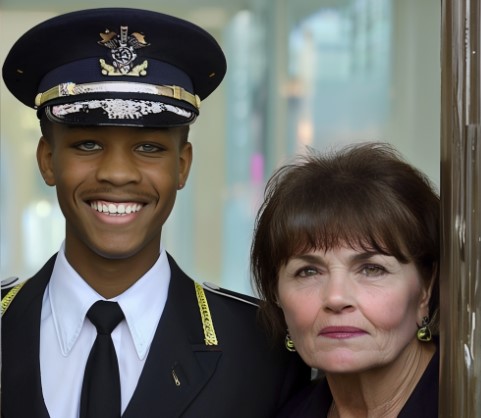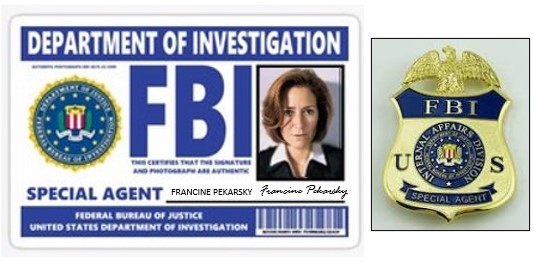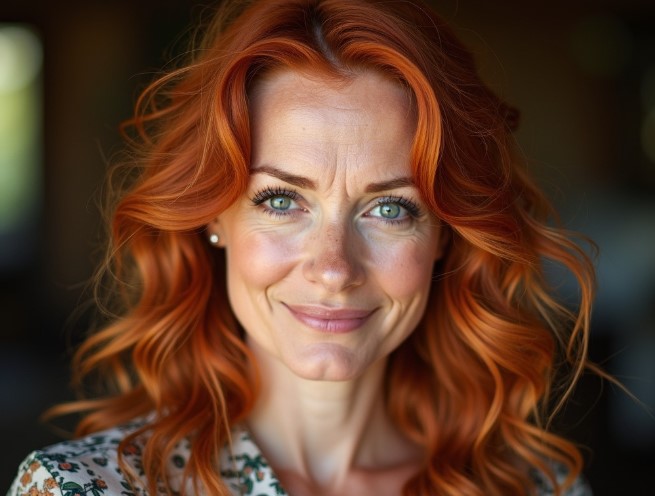![]()
By Jim Wile

| Author Notes |
Fran Pekarsky: One of three narrators of the story. She is an FBI agent from the North Carolina field office. Dana Padgett: One of three narrators of the story. She is the assistant marketing director for a Big Pharma company. Brian Kendrick: Fran's younger brother. He is the inventor of a new non-addictive painkiller. |
![]()
By Jim Wile
 Warning: The author has noted that this contains the highest level of language.
Warning: The author has noted that this contains the highest level of language.
| Author Notes |
Fran Pekarsky: One of three narrators of the story. She is an FBI agent from the North Carolina field office in Charlotte. Dana Padgett: One of three narrators of the story. She is the assistant marketing director for a Big Pharma company. Brian Kendrick: Fran's younger brother. He is the inventor of Dipraxa and Glyptophan. Lou D'Onofrio: Fran's boss at the FBI. Thing-1 and Thing-2: Two agents from the FBI's Inspection Division, the FBI equivalent of Internal Affairs. Picture courtesy of Playground-v3 |
![]()
By Jim Wile
 Warning: The author has noted that this contains the highest level of language.
Warning: The author has noted that this contains the highest level of language.
| Author Notes |
Fran Pekarsky: One of three narrators of the story. She is an FBI agent from the North Carolina field office in Charlotte. Dana Padgett: One of three narrators of the story. She is the assistant marketing director for a Big Pharma company. Brian Kendrick: Fran's younger brother. He is the inventor of Dipraxa and Glyptophan. Julia Kendrick: Brian's wife. Dr. Marie Schmidt: Julia's mother. Cedric (aka Cecil): The doorman at the apartment house where Marie lives. Lou D'Onofrio: Fran's boss at the FBI. Thing-1 and Thing-2: Two agents from the FBI's Inspection Division, the FBI equivalent of Internal Affairs. Picture courtesy of Playground-v3 |
![]()
By Jim Wile

| Author Notes |
Fran Pekarsky: One of three narrators of the story. She is an FBI agent from the North Carolina field office in Charlotte. Dana Padgett: One of three narrators of the story. She is the assistant marketing director for a Big Pharma company. Brian Kendrick: Fran's younger brother. He is the inventor of Dipraxa and Glyptophan. Julia Kendrick: Brian's wife. Dr. Marie Schmidt: Julia's mother. Cedric (aka Cecil): The doorman at the apartment house where Marie lives. Lou D'Onofrio: Fran's boss at the FBI. Thing-1 and Thing-2: Two agents from the FBI's Inspection Division, the FBI equivalent of Internal Affairs. Kevin Glazer: Fellow FBI agent whom Fran suspects is a mole who stole the formula for Dipraxa. Patty Mattson: A hacker friend of Fran's. Picture courtesy of Playground-v3 |
![]()
By Jim Wile
 Warning: The author has noted that this contains the highest level of language.
Warning: The author has noted that this contains the highest level of language.
| Author Notes |
* packing - a common term for carrying a concealed gun
Fran Pekarsky: One of three narrators of the story. She is an FBI agent from the North Carolina field office in Charlotte. Dana Padgett: One of three narrators of the story. She is the assistant marketing director for a Big Pharma company. Brian Kendrick: Fran's younger brother. He is the inventor of Dipraxa and Glyptophan. Julia Kendrick: Brian's wife. Dr. Marie Schmidt: Julia's mother. Cedric (aka Cecil): The doorman at the apartment house where Marie lives. Lou D'Onofrio: Fran's boss at the FBI. Thing-1 and Thing-2: Two agents from the FBI's Inspection Division, the FBI equivalent of Internal Affairs. Kevin Glazer: Fellow FBI agent whom Fran suspects is a mole who stole the formula for Dipraxa. Patty Mattson: A hacker friend of Fran's. Picture courtesy of Playground-v3 |
![]()
By Jim Wile

| Author Notes |
Fran Pekarsky: One of three narrators of the story. She is an FBI agent from the North Carolina field office in Charlotte. Dana Padgett: One of three narrators of the story. She is the assistant marketing director for a Big Pharma company. Brian Kendrick: Fran's younger brother. He is the inventor of Dipraxa and Glyptophan. Julia Kendrick: Brian's wife. Dr. Marie Schmidt: Julia's mother. Cedric (aka Cecil): The doorman at the apartment house where Marie lives. Lou D'Onofrio: Fran's boss at the FBI. Thing-1 and Thing-2: Two agents from the FBI's Inspection Division, the FBI equivalent of Internal Affairs. Kevin Glazer: Fellow FBI agent whom Fran suspects is a mole who stole the formula for Dipraxa. Patty Mattson: A hacker friend of Fran's. Brittany Edwards: Kevin Glazer's contact at the patent office where she is stealing secrets for him. |
![]()
By Jim Wile
 Warning: The author has noted that this contains the highest level of language.
Warning: The author has noted that this contains the highest level of language.
| Author Notes |
For those of you who read my novel, Some Call It Luck, which I posted in early 2023, you may remember that the story Dana tells about her past was from that novel. Abby St. Claire has been in several of my novels and is mentioned here for a reason, which we will discover later.
Fran Pekarsky: One of three narrators of the story. She is an FBI agent from the North Carolina field office in Charlotte. Dana Padgett: One of three narrators of the story. She is the assistant marketing director for a Big Pharma company. Brian Kendrick: Fran's younger brother. He is the inventor of Dipraxa and Glyptophan. Julia Kendrick: Brian's wife. Dr. Marie Schmidt: Julia's mother. Cedric (aka Cecil): The doorman at the apartment house where Marie lives. Lou D'Onofrio: Fran's boss at the FBI. Thing-1 and Thing-2: Two agents from the FBI's Inspection Division, the FBI equivalent of Internal Affairs. Kevin Glazer: Fellow FBI agent whom Fran suspects is a mole who stole the formula for Dipraxa. Patty Mattson: A hacker friend of Fran's. Brittany Edwards: Kevin Glazer's contact at the patent office where she is stealing secrets for him. |
![]()
By Jim Wile
 Warning: The author has noted that this contains the highest level of language.
Warning: The author has noted that this contains the highest level of language.
| Author Notes |
* Walter White is the central character in the famous series Breaking Bad. He is a mild-mannered (at first) chemistry teacher who finds out he has terminal lung cancer and decides to cook meth and sell it to provide for his family after his impending death.
Fran Pekarsky: One of three narrators of the story. She is an FBI agent from the North Carolina field office in Charlotte. Dana Padgett: One of three narrators of the story. She is the assistant marketing director for a Big Pharma company. Brian Kendrick: Fran's younger brother. He is the inventor of Dipraxa and Glyptophan. Julia Kendrick: Brian's wife. Dr. Marie Schmidt: Julia's mother. Cedric (aka Cecil): The doorman at the apartment house where Marie lives. Lou D'Onofrio: Fran's boss at the FBI. Thing-1 and Thing-2: Two agents from the FBI's Inspection Division, the FBI equivalent of Internal Affairs. Kevin Glazer: Fellow FBI agent whom Fran suspects is a mole who stole the formula for Dipraxa. Patty Mattson: A hacker friend of Fran's. Brittany Edwards: Kevin Glazer's contact at the patent office where she is stealing secrets for him. Abby Payne (nee St. Claire): A girl from Dana's past, who she used to bully but has befriended during their adulthood. Photo courtesy of Playground-v3 |
![]()
By Jim Wile

| Author Notes |
Fran Pekarsky: One of three narrators of the story. She is an FBI agent from the North Carolina field office in Charlotte. Dana Padgett: One of three narrators of the story. She is the assistant marketing director for a Big Pharma company. Brian Kendrick: Fran's younger brother. He is the inventor of Dipraxa and Glyptophan. Julia Kendrick: Brian's wife. Dr. Marie Schmidt: Julia's mother. She is the third narrator of the story. Cedric (aka Cecil): The doorman at the apartment house where Marie lives. Lou D'Onofrio: Fran's boss at the FBI. Thing-1 and Thing-2: Two agents from the FBI's Inspection Division, the FBI equivalent of Internal Affairs. Kevin Glazer: Fellow FBI agent whom Fran suspects is a mole who stole the formula for Dipraxa. Patty Mattson: A hacker friend of Fran's. Brittany Edwards: Kevin Glazer's contact at the patent office where she is stealing secrets for him. Abby Payne (nee St. Claire): A girl from Dana's past, who she used to bully but has befriended during their adulthood. Mike Pekarsky: Fran's husband. He is a homeland security agent. Paul Rieke: Brian's former college professor and geneticist, who helped steer him into neuroscience. He has become a good friend. Willy Stubblefield: The leader of Julia's bluegrass band. Picture courtesy of Playground-v3. |
![]()
By Jim Wile

| Author Notes |
Fran Pekarsky: One of three narrators of the story. She is an FBI agent from the North Carolina field office in Charlotte. Dana Padgett: One of three narrators of the story. She is the assistant marketing director for a Big Pharma company. Brian Kendrick: Fran's younger brother. He is the inventor of Dipraxa and Glyptophan. Julia Kendrick: Brian's wife. Dr. Marie Schmidt: Julia's mother. She is the third narrator of the story. Cedric (aka Cecil): The doorman at the apartment house where Marie lives. Lou D'Onofrio: Fran's boss at the FBI. Thing-1 and Thing-2: Two agents from the FBI's Inspection Division, the FBI equivalent of Internal Affairs. Kevin Glazer: Fellow FBI agent whom Fran suspects is a mole who stole the formula for Dipraxa. Patty Mattson: A hacker friend of Fran's. Brittany Edwards: Kevin Glazer's contact at the patent office where she is stealing secrets for him. Abby Payne (nee St. Claire): A girl from Dana's past, who she used to bully but has befriended during their adulthood. Mike Pekarsky: Fran's husband. He is a DHS agent. Paul Rieke: Brian's former college professor and geneticist, who helped steer him into neuroscience. He has become a good friend. Willy Stubblefield: The leader of Julia's bluegrass band. Shannon Stubblefield: Willy's wife and the drummer in the bluegrass band. Picture courtesy of Playground-v3. The following clip is from the movie Deliverance. If you want to cut to the chase, start at around the 2:45 minute mark. |
![]()
By Jim Wile
 Warning: The author has noted that this contains the highest level of language.
Warning: The author has noted that this contains the highest level of language.
| Author Notes |
Fran Pekarsky: One of three narrators of the story. She is an FBI agent from the North Carolina field office in Charlotte. Dana Padgett: One of three narrators of the story. She is the assistant marketing director for a Big Pharma company. Brian Kendrick: Fran's younger brother. He is the inventor of Dipraxa and Glyptophan. Julia Kendrick: Brian's wife. Dr. Marie Schmidt: Julia's mother. She is the third narrator of the story. Cedric (aka Cecil): The doorman at the apartment house where Marie lives. Lou D'Onofrio: Fran's boss at the FBI. Thing-1 and Thing-2: Two agents from the FBI's Inspection Division, the FBI equivalent of Internal Affairs. Kevin Glazer: Fellow FBI agent whom Fran suspects is a mole who stole the formula for Dipraxa. Patty Mattson: A hacker friend of Fran's. Brittany Edwards: Kevin Glazer's contact at the patent office where she is stealing secrets for him. Abby Payne (nee St. Claire): A girl from Dana's past, who she used to bully but has befriended during their adulthood. Mike Pekarsky: Fran's husband. He is a DHS agent. Paul Rieke: Brian's former college professor and geneticist, who helped steer him into neuroscience. He has become a good friend. Willy Stubblefield: The leader of Julia's bluegrass band. Shannon Stubblefield: Willy's wife and the drummer in the bluegrass band. Picture courtesy of Playground-v3. |
![]()
By Jim Wile

| Author Notes |
Fran Pekarsky: One of three narrators of the story. She is an FBI agent from the North Carolina field office in Charlotte. Dana Padgett: One of three narrators of the story. She is the assistant marketing director for a Big Pharma company. Brian Kendrick: Fran's younger brother. He is the inventor of Dipraxa and Glyptophan. Julia Kendrick: Brian's wife. Dr. Marie Schmidt: Julia's mother. She is the third narrator of the story. Cedric (aka Cecil): The doorman at the apartment house where Marie lives. Lou D'Onofrio: Fran's boss at the FBI. Patty Mattson: A hacker friend of Fran's. Abby Payne (nee St. Claire): A girl from Dana's past, who she used to bully but has befriended during their adulthood. Mike Pekarsky: Fran's husband. He is a DHS agent. Paul Rieke: Brian's former college professor and geneticist, who helped steer him into neuroscience. He has become a good friend. Willy Stubblefield: The leader of Julia's bluegrass band. Shannon Stubblefield: Willy's wife and the drummer in the bluegrass band. Picture courtesy of Playground-v3. Yes, that's Steve Martin playing at the 1:15 mark. |
![]()
By Jim Wile
 Warning: The author has noted that this contains the highest level of language.
Warning: The author has noted that this contains the highest level of language.
| Author Notes |
Fran Pekarsky: One of three narrators of the story. She is an FBI agent from the North Carolina field office in Charlotte. Dana Padgett: One of three narrators of the story. She is the assistant marketing director for a Big Pharma company. Brian Kendrick: Fran's younger brother. He is the inventor of Dipraxa and Glyptophan. Julia Kendrick: Brian's wife. Dr. Marie Schmidt: Julia's mother. She is the third narrator of the story. Cedric (aka Cecil): The doorman at the apartment house where Marie lives. Lou D'Onofrio: Fran's boss at the FBI. Patty Mattson: A hacker friend of Fran's. Abby Payne (nee St. Claire): A girl from Dana's past, who she used to bully but has befriended during their adulthood. Mike Pekarsky: Fran's husband. He is a DHS agent. Paul Rieke: Brian's former college professor and geneticist, who helped steer him into neuroscience. He has become a good friend. Willy Stubblefield: The leader of Julia's bluegrass band. Shannon Stubblefield: Willy's wife and the drummer in the bluegrass band. Picture courtesy of Playground-v3. |
![]()
By Jim Wile

| Author Notes |
Fran Pekarsky: One of three narrators of the story. She is an FBI agent from the North Carolina field office in Charlotte. Dana Padgett: One of three narrators of the story. She is the assistant marketing director for a Big Pharma company. Brian Kendrick: Fran's younger brother. He is the inventor of Dipraxa and Glyptophan. Julia Kendrick: Brian's wife. Dr. Marie Schmidt: Julia's mother. She is the third narrator of the story. Cedric (aka Cecil): The doorman at the apartment house where Marie lives. Lou D'Onofrio: Fran's boss at the FBI. Patty Mattson: A hacker friend of Fran's. Abby Payne (nee St. Claire): A girl from Dana's past, who she used to bully but has befriended during their adulthood. Mike Pekarsky: Fran's husband. He is a DHS agent. Paul Rieke: Brian's former college professor and geneticist, who helped steer him into neuroscience. He has become a good friend. Willy Stubblefield: The leader of Julia's bluegrass band. Shannon Stubblefield: Willy's wife and the drummer in the bluegrass band. Picture courtesy of Playground-v2.5 |
![]()
By Jim Wile

| Author Notes |
Fran Pekarsky: One of three narrators of the story. She is an FBI agent from the North Carolina field office in Charlotte. Dana Padgett: One of three narrators of the story. She is the assistant marketing director for a Big Pharma company. Brian Kendrick: Fran's younger brother. He is the inventor of Dipraxa and Glyptophan. Julia Kendrick: Brian's wife. Dr. Marie Schmidt: Julia's mother. She is the third narrator of the story. Cedric (aka Cecil): The doorman at the apartment house where Marie lives. Lou D'Onofrio: Fran's boss at the FBI. Patty Mattson: A hacker friend of Fran's. The programmer on Brian's project. Abby Payne (nee St. Claire): A girl from Dana's past, who she used to bully but has befriended during their adulthood. The mathematician on Brian's project. Mike Pekarsky: Fran's husband. He is a DHS agent. Willy Stubblefield: The leader of Julia's bluegrass band. Shannon Stubblefield: Willy's wife and the drummer in the bluegrass band. Picture courtesy of Flux-dev |
![]()
By Jim Wile

| Author Notes |
Fran Pekarsky: One of three narrators of the story. She is an FBI agent from the North Carolina field office in Charlotte. Dana Padgett: One of three narrators of the story. She is the assistant marketing director for a Big Pharma company. Brian Kendrick: Fran's younger brother. He is the inventor of Dipraxa and Glyptophan. Julia Kendrick: Brian's wife. Dr. Marie Schmidt: Julia's mother. She is the third narrator of the story. Cedric (aka Cecil): The doorman at the apartment house where Marie lives. Lou D'Onofrio: Fran's boss at the FBI. Patty Mattson: A hacker friend of Fran's. The programmer on Brian's project. Abby Payne (nee St. Claire): A girl from Dana's past, who she used to bully but has befriended during their adulthood. The mathematician on Brian's project. Mike Pekarsky: Fran's husband. He is a DHS agent. Willy Stubblefield: The leader of Julia's bluegrass band. Shannon Stubblefield: Willy's wife and the drummer in the bluegrass band. Picture courtesy of Playground-v3 |
![]()
By Jim Wile
 Warning: The author has noted that this contains the highest level of language.
Warning: The author has noted that this contains the highest level of language.
| Author Notes |
My grandson, Jeremy, when he was Johnny's age also called anything he couldn't pronounce "Ga-ga." Even "cucugaga" was his version of cucumber back then. My wife Elise and I were known collectively as "The Ga-ga's." Ten years later, we are still known as a shortened version, "The Gogs."
Fran Pekarsky: One of three narrators of the story. She is an FBI agent from the North Carolina field office in Charlotte. Dana Padgett: One of three narrators of the story. She is the assistant marketing director for a Big Pharma company. Brian Kendrick: Fran's younger brother. He is the inventor of Dipraxa and Glyptophan. Julia Kendrick: Brian's wife. Johnny Kendrick: Brian and Julia's baby boy and Marie's grandson. Dr. Marie Schmidt: Julia's mother. She is the third narrator of the story. Cedric (aka Cecil): The doorman at the apartment house where Marie lives. Lou D'Onofrio: Fran's boss at the FBI. Patty Mattson: A hacker friend of Fran's. The programmer on Brian's project. Abby Payne (nee St. Claire): A girl from Dana's past, who she used to bully but has befriended during their adulthood. The mathematician on Brian's project. Mike Pekarsky: Fran's husband. He is a DHS agent. Willy Stubblefield: The leader of Julia's bluegrass band. Shannon Stubblefield: Willy's wife and the drummer in the bluegrass band. Picture courtesy of Microsoft Copilot |
![]()
By Jim Wile

| Author Notes |
Fran Pekarsky: One of three narrators of the story. She is an FBI agent from the North Carolina field office in Charlotte. Dana Padgett: One of three narrators of the story. She is the assistant marketing director for a Big Pharma company. Brian Kendrick: Fran's younger brother. He is the inventor of Dipraxa and Glyptophan. Julia Kendrick: Brian's wife. Johnny Kendrick: Brian and Julia's baby boy and Marie's grandson. Dr. Marie Schmidt: Julia's mother. She is the third narrator of the story. Cedric (aka Cecil): The doorman at the apartment house where Marie lives. Lou D'Onofrio: Fran's boss at the FBI. Patty Mattson: A hacker friend of Fran's. The programmer on Brian's project. Abby Payne (nee St. Claire): A girl from Dana's past, who she used to bully but has befriended during their adulthood. The mathematician on Brian's project. Mike Pekarsky: Fran's husband. He is a DHS agent. Willy Stubblefield: The leader of Julia's bluegrass band. Shannon Stubblefield: Willy's wife and the drummer in the bluegrass band. Picture courtesy of Microsoft Copilot |
![]()
By Jim Wile

| Author Notes |
Fran Pekarsky: One of three narrators of the story. She is an FBI agent from the North Carolina field office in Charlotte. Dana Padgett: One of three narrators of the story. She is the assistant marketing director for a Big Pharma company. Brian Kendrick: Fran's younger brother. He is the inventor of Dipraxa and Glyptophan. Julia Kendrick: Brian's wife. Johnny Kendrick: Brian and Julia's baby boy and Marie's grandson. Dr. Marie Schmidt: Julia's mother. She is the third narrator of the story. Cedric (aka Cecil): The doorman at the apartment house where Marie lives. Lou D'Onofrio: Fran's boss at the FBI. Patty Mattson: A hacker friend of Fran's. The programmer on Brian's project. Abby Payne (nee St. Claire): A girl from Dana's past, who she used to bully but has befriended during their adulthood. The mathematician on Brian's project. Mike Pekarsky: Fran's husband. He is a DHS agent. Willy Stubblefield: The leader of Julia's bluegrass band. Shannon Stubblefield: Willy's wife and the drummer in the bluegrass band. |
![]()
By Jim Wile

| Author Notes |
Pituitary gland - A pea-sized gland located at the base of the brain that regulates many functions. Among these are the production of endorphins. Endorphin - Hormones produced by the central nervous system, including the pituitary gland, that are responsible for pain relief, stress relief, and feelings of euphoria. Opioid receptors - Proteins in the cell membranes of nerve cells. When opioids or endorphins bind to them, they reduce pain signals and create feelings of euphoria. RNA - Ribonucleic acid is similar to DNA, but is single stranded. It performs various biological functions within cells. One of its main functions is to regulate gene expression. RNA interference - A biological process where RNA molecules inhibit the expression of specific genes, which effectively silences them. Enzyme - A protein that speeds up chemical reactions. Alkaloid - A naturally occurring compound found in plants that has a variety of roles. They are often used in medicine and certain ones can be highly toxic. Fran Pekarsky: One of three narrators of the story. She is an FBI agent from the North Carolina field office in Charlotte. Dana Padgett: One of three narrators of the story. She is the assistant marketing director for a Big Pharma company. Brian Kendrick: Fran's younger brother. He is the inventor of Dipraxa and Glyptophan. Julia Kendrick: Brian's wife. She is a world-class violinist who now plays in a bluegrass band. Johnny Kendrick: Brian and Julia's baby boy and Marie's grandson. Dr. Marie Schmidt: Julia's mother. She is the third narrator of the story. Cedric (aka Cecil): The doorman at the apartment house where Marie lives. Lou D'Onofrio: Fran's boss at the FBI. Patty Mattson: A hacker friend of Fran's. The programmer on Brian's project. Abby Payne (nee St. Claire): A girl from Dana's past, who she used to bully but has befriended during their adulthood. The mathematician on Brian's project. Mike Pekarsky: Fran's husband. He is a DHS agent. Willy Stubblefield: The leader of Julia's bluegrass band. Shannon Stubblefield: Willy's wife and the drummer in the bluegrass band. Picture courtesy of Playground-v3 |
![]()
By Jim Wile

| Author Notes |
Fran Pekarsky: One of three narrators of the story. She is an FBI agent from the North Carolina field office in Charlotte. Dana Padgett: One of three narrators of the story. She is the assistant marketing director for a Big Pharma company. Brian Kendrick: Fran's younger brother. He is the inventor of Dipraxa and Glyptophan. Julia Kendrick: Brian's wife. She is a world-class violinist who now plays in a bluegrass band. Johnny Kendrick: Brian and Julia's baby boy and Marie's grandson. Dr. Marie Schmidt: Julia's mother. She is the third narrator of the story. Cedric (aka Cecil): The doorman at the apartment house where Marie lives. Lou D'Onofrio: Fran's boss at the FBI. Patty Mattson: A hacker friend of Fran's. The programmer on Brian's project. Abby Payne (nee St. Claire): A girl from Dana's past, who she used to bully but has befriended during their adulthood. The mathematician on Brian's project. Mike Pekarsky: Fran's husband. He is a DHS agent. Willy Stubblefield: The leader of Julia's bluegrass band. Shannon Stubblefield: Willy's wife and the drummer in the bluegrass band. Steve Griffin: Dana's husband. Alphonse: A smart-ass kid Brian and Julia met in rehab when they were 16. He's now a homeless man. Picture courtesy of Playground-v3 |
![]()
By Jim Wile

| Author Notes |
Fran Pekarsky: One of three narrators of the story. She is an FBI agent from the North Carolina field office in Charlotte. Dana Padgett: One of three narrators of the story. She is the assistant marketing director for a Big Pharma company. Brian Kendrick: Fran's younger brother. He is the inventor of Dipraxa and Glyptophan. Julia Kendrick: Brian's wife. She is a world-class violinist who now plays in a bluegrass band. Johnny Kendrick: Brian and Julia's baby boy and Marie's grandson. Dr. Marie Schmidt: Julia's mother. She is the third narrator of the story. Cedric (aka Cecil): The doorman at the apartment house where Marie lives. Lou D'Onofrio: Fran's boss at the FBI. Patty Mattson: A hacker friend of Fran's. The programmer on Brian's project. Abby Payne (nee St. Claire): A girl from Dana's past, who she used to bully but has befriended during their adulthood. The mathematician on Brian's project. Mike Pekarsky: Fran's husband. He is a DHS agent. Willy Stubblefield: The leader of Julia's bluegrass band. Shannon Stubblefield: Willy's wife and the drummer in the bluegrass band. Leonard Merra: A vice president at the Big Pharma company where Dana works. He is in charge of stopping Glyptophan. Steve Griffin: Dana's husband. Alphonse: A Dip-addicted, homeless man who Brian and Julia met in rehab 17 years earlier. Picture courtesy of Playground-v3 |
![]()
By Jim Wile
 Warning: The author has noted that this contains the highest level of language.
Warning: The author has noted that this contains the highest level of language.
| Author Notes |
Fran Pekarsky: One of three narrators of the story. She is an FBI agent from the North Carolina field office in Charlotte. Dana Padgett: One of three narrators of the story. She is the assistant marketing director for a Big Pharma company. Brian Kendrick: Fran's younger brother. He is the inventor of Dipraxa and Glyptophan. Julia Kendrick: Brian's wife. She is a world-class violinist who now plays in a bluegrass band. Johnny Kendrick: Brian and Julia's baby boy and Marie's grandson. Dr. Marie Schmidt: Julia's mother. She is the third narrator of the story. Cedric (aka Cecil): The doorman at the apartment house where Marie lives. Lou D'Onofrio: Fran's boss at the FBI. Patty Mattson: A hacker friend of Fran's. The programmer on Brian's project. Abby Payne (nee St. Claire): A girl from Dana's past, who she used to bully but has befriended during their adulthood. The mathematician on Brian's project. Mike Pekarsky: Fran's husband. He is a DHS agent. Willy Stubblefield: The leader of Julia's bluegrass band. Shannon Stubblefield: Willy's wife and the drummer in the bluegrass band. Leonard Merra: A vice president at the Big Pharma company where Dana works. He is in charge of stopping Glyptophan. Steve Griffin: Dana's husband. Alphonse: A Dip-addicted, homeless man who Brian and Julia met in rehab 17 years earlier. Picture courtesy of Playground-v3 |
![]()
By Jim Wile

| Author Notes |
Fran Pekarsky: One of three narrators of the story. She is an FBI agent from the North Carolina field office in Charlotte. Dana Padgett: One of three narrators of the story. She is the assistant marketing director for a Big Pharma company. Brian Kendrick: Fran's younger brother. He is the inventor of Dipraxa and Glyptophan. Julia Kendrick: Brian's wife. She is a world-class violinist who now plays in a bluegrass band. Johnny Kendrick: Brian and Julia's baby boy and Marie's grandson. Dr. Marie Schmidt: Julia's mother. She is the third narrator of the story. Cedric (aka Cecil): The doorman at the apartment house where Marie lives. Lou D'Onofrio: Fran's boss at the FBI. Patty Mattson: A hacker friend of Fran's. The programmer on Brian's project. Abby Payne (nee St. Claire): A girl from Dana's past, who she used to bully but has befriended during their adulthood. The mathematician on Brian's project. Mike Pekarsky: Fran's husband. He is a DHS agent. Willy Stubblefield: The leader of Julia's bluegrass band. Shannon Stubblefield: Willy's wife and the drummer in the bluegrass band. Leonard Merra: A vice president at the Big Pharma company where Dana works. He is in charge of stopping Glyptophan. Steve Griffin: Dana's husband. Alphonse: A Dip-addicted, homeless man who Brian and Julia met in rehab 17 years earlier. Barry Degner (aka Tony Faiella): Dana's friend who will act the part of a leg-breaker to attack Brian. Picture courtesy of Playground-v3 |
![]()
By Jim Wile
 Warning: The author has noted that this contains the highest level of language.
Warning: The author has noted that this contains the highest level of language.
| Author Notes |
* Heisenberg is Walter White's alter ego in the hit series, Breaking Bad. He was the evil meth cook part of Walter's personality.
Fran Pekarsky: One of three narrators of the story. She is an FBI agent from the North Carolina field office in Charlotte. Dana Padgett: One of three narrators of the story. She is the assistant marketing director for a Big Pharma company. Brian Kendrick: Fran's younger brother. He is the inventor of Dipraxa and Glyptophan. Julia Kendrick: Brian's wife. She is a world-class violinist who now plays in a bluegrass band. Johnny Kendrick: Brian and Julia's baby boy and Marie's grandson. Dr. Marie Schmidt: Julia's mother. She is the third narrator of the story. Cedric (aka Cecil): The doorman at the apartment house where Marie lives. Lou D'Onofrio: Fran's boss at the FBI. Patty Mattson: A hacker friend of Fran's. The programmer on Brian's project. Abby Payne (nee St. Claire): A girl from Dana's past, who she used to bully but has befriended during their adulthood. The mathematician on Brian's project. Mike Pekarsky: Fran's husband. He is a DHS agent. Willy Stubblefield: The leader of Julia's bluegrass band. Shannon Stubblefield: Willy's wife and the drummer in the bluegrass band. Leonard Merra: A vice president at the Big Pharma company where Dana works. He is in charge of stopping Glyptophan. Steve Griffin: Dana's husband. Alphonse: A Dip-addicted, homeless man who Brian and Julia met in rehab 17 years earlier. Barry Degner (aka Tony Faiella): Dana's friend who will act the part of a leg-breaker to attack Brian. |
![]()
By Jim Wile

| Author Notes |
Fran Pekarsky: One of three narrators of the story. She is an FBI agent from the North Carolina field office in Charlotte. Dana Padgett: One of three narrators of the story. She is the assistant marketing director for a Big Pharma company. Brian Kendrick: Fran's younger brother. He is the inventor of Dipraxa and Glyptophan. Julia Kendrick: Brian's wife. She is a world-class violinist who now plays in a bluegrass band. Johnny Kendrick: Brian and Julia's baby boy and Marie's grandson. Dr. Marie Schmidt: Julia's mother. She is the third narrator of the story. Cedric (aka Cecil): The doorman at the apartment house where Marie lives. Lou D'Onofrio: Fran's boss at the FBI. Patty Mattson: A hacker friend of Fran's. The programmer on Brian's project. Abby Payne (nee St. Claire): A girl from Dana's past, who she used to bully but has befriended during their adulthood. The mathematician on Brian's project. Mike Pekarsky: Fran's husband. He is a DHS agent. Willy Stubblefield: The leader of Julia's bluegrass band. Shannon Stubblefield: Willy's wife and the drummer in the bluegrass band. Leonard Merra: A vice president at the Big Pharma company where Dana works. He is in charge of stopping Glyptophan. Steve Griffin: Dana's husband. Alphonse: A Dip-addicted, homeless man who Brian and Julia met in rehab 17 years earlier. Barry Degner (aka Tony Faiella): Dana's friend who will act the part of a leg-breaker to attack Brian. Picture courtesy of Playground-v3 |
![]()
By Jim Wile

| Author Notes |
Fran Pekarsky: One of three narrators of the story. She is an FBI agent from the North Carolina field office in Charlotte. Dana Padgett: One of three narrators of the story. She is the assistant marketing director for a Big Pharma company. Brian Kendrick: Fran's younger brother. He is the inventor of Dipraxa and Glyptophan. Julia Kendrick: Brian's wife. She is a world-class violinist who now plays in a bluegrass band. Johnny Kendrick: Brian and Julia's baby boy and Marie's grandson. Dr. Marie Schmidt: Julia's mother. She is the third narrator of the story. Cedric (aka Cecil): The doorman at the apartment house where Marie lives. Lou D'Onofrio: Fran's boss at the FBI. Patty Mattson: A hacker friend of Fran's. The programmer on Brian's project. Abby Payne (nee St. Claire): A girl from Dana's past, who she used to bully but has befriended during their adulthood. The mathematician on Brian's project. Mike Pekarsky: Fran's husband. He is a DHS agent. Willy Stubblefield: The leader of Julia's bluegrass band. Shannon Stubblefield: Willy's wife and the drummer in the bluegrass band. Leonard Merra: A vice president at the Big Pharma company where Dana works. He is in charge of stopping Glyptophan. Steve Griffin: Dana's husband. Alphonse: A Dip-addicted, homeless man who Brian and Julia met in rehab 17 years earlier. Barry Degner (aka Tony Faiella): Dana's friend who will act the part of a leg-breaker to attack Brian. Picture courtesy of Playground-v3 |
![]()
By Jim Wile

| Author Notes |
Fran Pekarsky: One of three narrators of the story. She is an FBI agent from the North Carolina field office in Charlotte. Dana Padgett: One of three narrators of the story. She is the assistant marketing director for a Big Pharma company. Brian Kendrick: Fran's younger brother. He is the inventor of Dipraxa and Glyptophan. Julia Kendrick: Brian's wife. She is a world-class violinist who now plays in a bluegrass band. Johnny Kendrick: Brian and Julia's baby boy and Marie's grandson. Dr. Marie Schmidt: Julia's mother. She is the third narrator of the story. Cedric (aka Cecil): The doorman at the apartment house where Marie lives. Lou D'Onofrio: Fran's boss at the FBI. Patty Mattson: A hacker friend of Fran's. The programmer on Brian's project. Abby Payne (nee St. Claire): A girl from Dana's past, who she used to bully but has befriended during their adulthood. The mathematician on Brian's project. Mike Pekarsky: Fran's husband. He is a DHS agent. Leonard Merra: A vice president at the Big Pharma company where Dana works. He is in charge of stopping Glyptophan. Steve Griffin: Dana's husband. Barry Degner (aka Tony Faiella): Dana's friend who will act the part of a leg-breaker to attack Brian. Judge Raymond Jezek: The district court judge in Philadelphia who grants Fran a wiretap warrant against Leonard Merra. Picture courtesy of Playground-v3 |
![]()
By Jim Wile

| Author Notes |
Fran Pekarsky: One of three narrators of the story. She is an FBI agent from the North Carolina field office in Charlotte. Dana Padgett: One of three narrators of the story. She is the assistant marketing director for a Big Pharma company. Brian Kendrick: Fran's younger brother. He is the inventor of Dipraxa and Glyptophan. Julia Kendrick: Brian's wife. She is a world-class violinist who now plays in a bluegrass band. Johnny Kendrick: Brian and Julia's baby boy and Marie's grandson. Dr. Marie Schmidt: Julia's mother. She is the third narrator of the story. Cedric (aka Cecil): The doorman at the apartment house where Marie lives. Lou D'Onofrio: Fran's boss at the FBI. Patty Mattson: A hacker friend of Fran's. The programmer on Brian's project. Abby Payne (nee St. Claire): A girl from Dana's past, who she used to bully but has befriended during their adulthood. The mathematician on Brian's project. Mike Pekarsky: Fran's husband. He is a DHS agent. Leonard Merra: A vice president at the Big Pharma company where Dana works. He is in charge of stopping Glyptophan. Steve Griffin: Dana's husband. Barry Degner (aka Tony Faiella): Dana's friend who will act the part of a leg-breaker to attack Brian. Judge Raymond Jezek: The district court judge in Philadelphia who grants Fran a wiretap warrant against Leonard Merra. |
![]()
By Jim Wile

| Author Notes |
Fran Pekarsky: One of three narrators of the story. She is an FBI agent from the North Carolina field office in Charlotte. Dana Padgett: One of three narrators of the story. She is the assistant marketing director for a Big Pharma company. Brian Kendrick: Fran's younger brother. He is the inventor of Dipraxa and Glyptophan. Julia Kendrick: Brian's wife. She is a world-class violinist who now plays in a bluegrass band. Johnny Kendrick: Brian and Julia's baby boy and Marie's grandson. Dr. Marie Schmidt: Julia's mother. She is the third narrator of the story. Cedric (aka Cecil): The doorman at the apartment house where Marie lives. Lou D'Onofrio: Fran's boss at the FBI. Patty Mattson: A hacker friend of Fran's. The programmer on Brian's project. Abby Payne (nee St. Claire): A girl from Dana's past, who she used to bully but has befriended during their adulthood. The mathematician on Brian's project. Mike Pekarsky: Fran's husband. He is a DHS agent. Leonard Merra: A vice president at the Big Pharma company where Dana works. He is in charge of stopping Glyptophan. Steve Griffin: Dana's husband. Barry Degner (aka Tony Faiella): Dana's friend who will act the part of a leg-breaker to attack Brian. Judge Raymond Jezek: The district court judge in Philadelphia who grants Fran a wiretap warrant against Leonard Merra. Picture courtesy of Flux-Pro |
![]()
By Jim Wile

| Author Notes |
Fran Pekarsky: One of three narrators of the story. She is an FBI agent from the North Carolina field office in Charlotte. Dana Padgett: One of three narrators of the story. She is the assistant marketing director for a Big Pharma company. Brian Kendrick: Fran's younger brother. He is the inventor of Dipraxa and Glyptophan. Julia Kendrick: Brian's wife. She is a world-class violinist who now plays in a bluegrass band. Johnny Kendrick: Brian and Julia's baby boy and Marie's grandson. Dr. Marie Schmidt: Julia's mother. She is the third narrator of the story. Cedric (aka Cecil): The doorman at the apartment house where Marie lives. Lou D'Onofrio: Fran's boss at the FBI. Patty Mattson: A hacker friend of Fran's. The programmer on Brian's project. Abby Payne (nee St. Claire): A girl from Dana's past, who she used to bully but has befriended during their adulthood. The mathematician on Brian's project. Mike Pekarsky: Fran's husband. He is a DHS agent. Leonard Merra: A vice president at the Big Pharma company where Dana works. He is in charge of stopping Glyptophan. Steve Griffin: Dana's husband. Barry Degner (aka Tony Faiella): Dana's friend who will act the part of a leg-breaker to attack Brian. Judge Raymond Jezek: The district court judge in Philadelphia who grants Fran a wiretap warrant against Leonard Merra. Picture courtesy of Imagen3-Fast |
![]()
By Jim Wile
 Warning: The author has noted that this contains the highest level of language.
Warning: The author has noted that this contains the highest level of language.
| Author Notes |
* MREs: Meals ready-to-eat, frequently used by the military.
** DoD: Department of Defense *** SATCOM: Satellite communications Fran Pekarsky: One of three narrators of the story. She is an FBI agent from the North Carolina field office in Charlotte. Dana Padgett: One of three narrators of the story. She is the assistant marketing director for a Big Pharma company. Brian Kendrick: Fran's younger brother. He is the inventor of Dipraxa and Glyptophan. Julia Kendrick: Brian's wife. She is a world-class violinist who now plays in a bluegrass band. Johnny Kendrick: Brian and Julia's baby boy and Marie's grandson. Dr. Marie Schmidt: Julia's mother. She is the third narrator of the story. Cedric (aka Cecil): The doorman at the apartment house where Marie lives. Lou D'Onofrio: Fran's boss at the FBI. Patty Mattson: A hacker friend of Fran's. The programmer on Brian's project. Abby Payne (nee St. Claire): A girl from Dana's past, who she used to bully but has befriended during their adulthood. The mathematician on Brian's project. Leonard Merra: A vice president at the Big Pharma company where Dana works. He is in charge of stopping Glyptophan. Barry Degner (aka Tony Faiella): Dana's friend who will act the part of a leg-breaker to attack Brian. Picture courtesy of Poe Assistant |
![]()
By Jim Wile
 Warning: The author has noted that this contains the highest level of violence.
Warning: The author has noted that this contains the highest level of violence.
| Author Notes |
Fran Pekarsky: One of three narrators of the story. She is an FBI agent from the North Carolina field office in Charlotte. Dana Padgett: One of three narrators of the story. She is the assistant marketing director for a Big Pharma company. Brian Kendrick: Fran's younger brother. He is the inventor of Dipraxa and Glyptophan. Julia Kendrick: Brian's wife. She is a world-class violinist who now plays in a bluegrass band. Johnny Kendrick: Brian and Julia's baby boy and Marie's grandson. Dr. Marie Schmidt: Julia's mother. She is the third narrator of the story. Cedric (aka Cecil): The doorman at the apartment house where Marie lives. Lou D'Onofrio: Fran's boss at the FBI. Patty Mattson: A hacker friend of Fran's. The programmer on Brian's project. Abby Payne (nee St. Claire): A girl from Dana's past, who she used to bully but has befriended during their adulthood. The mathematician on Brian's project. Leonard Merra: A vice president at the Big Pharma company where Dana works. He is in charge of stopping Glyptophan. Barry Degner (aka Tony Faiella): Dana's friend who will act the part of a leg-breaker to attack Brian. Picture courtesy of Playground-v3 |
![]()
By Jim Wile
 Warning: The author has noted that this contains the highest level of violence.
Warning: The author has noted that this contains the highest level of violence.
| Author Notes |
Fran Pekarsky: One of three narrators of the story. She is an FBI agent from the North Carolina field office in Charlotte. Dana Padgett: One of three narrators of the story. She is the assistant marketing director for a Big Pharma company. Brian Kendrick: Fran's younger brother. He is the inventor of Dipraxa and Glyptophan. Julia Kendrick: Brian's wife. She is a world-class violinist who now plays in a bluegrass band. Johnny Kendrick: Brian and Julia's baby boy and Marie's grandson. Dr. Marie Schmidt: Julia's mother. She is the third narrator of the story. Cedric (aka Cecil): The doorman at the apartment house where Marie lives. Lou D'Onofrio: Fran's boss at the FBI. Patty Mattson: A hacker friend of Fran's. The programmer on Brian's project. Abby Payne (nee St. Claire): A girl from Dana's past, who she used to bully but has befriended during their adulthood. The mathematician on Brian's project. Leonard Merra: A vice president at the Big Pharma company where Dana works. He is in charge of stopping Glyptophan. Barry Degner (aka Tony Faiella): Dana's friend who will act the part of a leg-breaker to attack Brian. Picture courtesy of Flux-Pro 1.1-Ultra |
![]()
By Jim Wile

| Author Notes |
Fran Pekarsky: One of three narrators of the story. She is an FBI agent from the North Carolina field office in Charlotte. Dana Padgett: One of three narrators of the story. She is the assistant marketing director for a Big Pharma company. Brian Kendrick: Fran's younger brother. He is the inventor of Dipraxa and Glyptophan. Julia Kendrick: Brian's wife. She is a world-class violinist who now plays in a bluegrass band. Johnny Kendrick: Brian and Julia's baby boy and Marie's grandson. Dr. Marie Schmidt: Julia's mother. She is the third narrator of the story. Cedric (aka Cecil): The doorman at the apartment house where Marie lives. Lou D'Onofrio: Fran's boss at the FBI. Patty Mattson: A hacker friend of Fran's. The programmer on Brian's project. Abby Payne (nee St. Claire): A girl from Dana's past, who she used to bully but has befriended during their adulthood. The mathematician on Brian's project. Leonard Merra: A vice president at the Big Pharma company where Dana works. He is in charge of stopping Glyptophan. Barry Degner (aka Tony Faiella): Dana's friend who will act the part of a leg-breaker to attack Brian. Picture courtesy of Playground-v3 |
![]()
By Jim Wile
 Warning: The author has noted that this contains the highest level of language.
Warning: The author has noted that this contains the highest level of language.
| Author Notes |
Fran Pekarsky: One of three narrators of the story. She is an FBI agent from the North Carolina field office in Charlotte. Dana Padgett: One of three narrators of the story. She is the assistant marketing director for a Big Pharma company. Brian Kendrick: Fran's younger brother. He is the inventor of Dipraxa and Glyptophan. Julia Kendrick: Brian's wife. She is a world-class violinist who now plays in a bluegrass band. Johnny Kendrick: Brian and Julia's baby boy and Marie's grandson. Dr. Marie Schmidt: Julia's mother. She is the third narrator of the story. Cedric (aka Cecil): The doorman at the apartment house where Marie lives. Lou D'Onofrio: Fran's boss at the FBI. Patty Mattson: A hacker friend of Fran's. The programmer on Brian's project. Abby Payne (nee St. Claire): A girl from Dana's past, who she used to bully but has befriended during their adulthood. The mathematician on Brian's project. Leonard Merra: A vice president at the Big Pharma company where Dana works. He is in charge of stopping Glyptophan. Sheila and Corinne: Two young violinists in Marie's orchestra. Picture courtesy of Playground-v3 |
![]()
By Jim Wile

| Author Notes |
Fran Pekarsky: One of three narrators of the story. She is an FBI agent from the North Carolina field office in Charlotte. Dana Padgett: One of three narrators of the story. She is the assistant marketing director for a Big Pharma company. Brian Kendrick: Fran's younger brother. He is the inventor of Dipraxa and Glyptophan. Julia Kendrick: Brian's wife. She is a world-class violinist who now plays in a bluegrass band. Johnny Kendrick: Brian and Julia's baby boy and Marie's grandson. Dr. Marie Schmidt: Julia's mother. She is the third narrator of the story. Cedric (aka Cecil): The doorman at the apartment house where Marie lives. Lou D'Onofrio: Fran's boss at the FBI. Patty Mattson: A hacker friend of Fran's. The programmer on Brian's project. Abby Payne (nee St. Claire): A girl from Dana's past, who she used to bully but has befriended during their adulthood. The mathematician on Brian's project. Leonard Merra: A vice president at the Big Pharma company where Dana works. He is in charge of stopping Glyptophan. Barry Degner (aka Tony Faiella): Dana's friend who will act the part of a leg-breaker to attack Brian. Picture courtesy of Flux-Pro-1.1-ultra |
![]()
By Jim Wile
 Warning: The author has noted that this contains the highest level of language.
Warning: The author has noted that this contains the highest level of language.
| Author Notes |
Fran Pekarsky: One of three narrators of the story. She is an FBI agent from the North Carolina field office in Charlotte. Dana Padgett: One of three narrators of the story. She is the assistant marketing director for a Big Pharma company. Brian Kendrick: Fran's younger brother. He is the inventor of Dipraxa and Glyptophan. Julia Kendrick: Brian's wife. She is a world-class violinist who now plays in a bluegrass band. Johnny Kendrick: Brian and Julia's baby boy and Marie's grandson. Dr. Marie Schmidt: Julia's mother. She is the third narrator of the story. Cedric (aka Cecil): The doorman at the apartment house where Marie lives. Lou D'Onofrio: Fran's boss at the FBI. Patty Mattson: A hacker friend of Fran's. The programmer on Brian's project. Abby Payne (nee St. Claire): A girl from Dana's past, who she used to bully but has befriended during their adulthood. The mathematician on Brian's project. Leonard Merra: A vice president at the Big Pharma company where Dana works. He is in charge of stopping Glyptophan. Rudy Spangler: A vice president at Gideon Pharmaceutical. He is in charge of stopping Glyptophan. Peter Israel: The security chief at Gideon Pharmaceutical. He is in cahoots with Rudy Spangler to stop Glyptophan. Leigh-Anne Grimsley: Rudy Spangler's secretary at Gideon Pharmaceutical. Picture courtesy of Poe Assistant |
![]()
By Jim Wile

| Author Notes |
Fran Pekarsky: One of three narrators of the story. She is an FBI agent from the North Carolina field office in Charlotte. Dana Padgett: One of three narrators of the story. She is a confidential informant (CI) for Fran and works in Big Pharma. Brian Kendrick: Fran's younger brother. He is the inventor of Dipraxa and Glyptophan. Julia Kendrick: Brian's wife. She is a world-class violinist who now plays in a bluegrass band. Johnny Kendrick: Brian and Julia's baby boy and Marie's grandson. Dr. Marie Schmidt: Julia's mother. She is the third narrator of the story. Cedric (aka Cecil): The doorman at the apartment house where Marie lives. Lou D'Onofrio: Fran's boss at the FBI. Patty Mattson: A hacker friend of Fran's. The programmer on Brian's project. Abby Payne (nee St. Claire): A girl from Dana's past, who she used to bully but has befriended during their adulthood. The mathematician on Brian's project. Leonard Merra: A vice president at the Big Pharma company where Dana works. He is in charge of stopping Glyptophan. Rudy Spangler: A vice president at Gideon Pharmaceutical. He is in charge of stopping Glyptophan. Peter Israel: The security chief at Gideon Pharmaceutical. He is in cahoots with Rudy Spangler to stop Glyptophan. Leigh-Anne Grimsley: Rudy Spangler's secretary at Gideon Pharmaceutical. Picture courtesy of Poe Assistant |
![]()
By Jim Wile

| Author Notes |
Fran Pekarsky: One of three narrators of the story. She is an FBI agent from the North Carolina field office in Charlotte. Dana Padgett: One of three narrators of the story. She is a confidential informant (CI) for Fran and works in Big Pharma. Brian Kendrick: Fran's younger brother. He is the inventor of Dipraxa and Glyptophan. Julia Kendrick: Brian's wife. She is a world-class violinist who now plays in a bluegrass band. Johnny Kendrick: Brian and Julia's baby boy and Marie's grandson. Dr. Marie Schmidt: Julia's mother. She is the third narrator of the story. Cedric (aka Cecil): The doorman at the apartment house where Marie lives. Lou D'Onofrio: Fran's boss at the FBI. Patty Mattson: A hacker friend of Fran's. The programmer on Brian's project. Abby Payne (nee St. Claire): A girl from Dana's past, who she used to bully but has befriended during their adulthood. The mathematician on Brian's project. Leonard Merra: A vice president at the Big Pharma company where Dana works. He is in charge of stopping Glyptophan. Rudy Spangler: A vice president at Gideon Pharmaceutical. He is in charge of stopping Glyptophan. Peter Israel: The security chief at Gideon Pharmaceutical. He is in cahoots with Rudy Spangler to stop Glyptophan. Leigh-Anne Grimsley: Rudy Spangler's secretary at Gideon Pharmaceutical. Picture courtesy of Fotor |
![]()
By Jim Wile
 Warning: The author has noted that this contains the highest level of language.
Warning: The author has noted that this contains the highest level of language.
| Author Notes |
Fran Pekarsky: One of three narrators of the story. She is an FBI agent from the North Carolina field office in Charlotte. Dana Padgett: One of three narrators of the story. She is a confidential informant (CI) for Fran and works in Big Pharma. Brian Kendrick: Fran's younger brother. He is the inventor of Dipraxa and Glyptophan. Julia Kendrick: Brian's wife. She is a world-class violinist who now plays in a bluegrass band. Johnny Kendrick: Brian and Julia's baby boy and Marie's grandson. Dr. Marie Schmidt: Julia's mother. She is the third narrator of the story. Cedric (aka Cecil): The doorman at the apartment house where Marie lives. Lou D'Onofrio: Fran's boss at the FBI. Patty Mattson: A hacker friend of Fran's. The programmer on Brian's project. Abby Payne (nee St. Claire): A girl from Dana's past, who she used to bully but has befriended during their adulthood. The mathematician on Brian's project. Leonard Merra: A vice president at the Big Pharma company where Dana works. He is in charge of stopping Glyptophan. Rudy Spangler: A vice president at Gideon Pharmaceutical. He is in charge of stopping Glyptophan. Peter Israel: The security chief at Gideon Pharmaceutical. He is in cahoots with Rudy Spangler to stop Glyptophan. Leigh-Anne Grimsley: Rudy Spangler's secretary at Gideon Pharmaceutical. Picture courtesy of Poe Assistant |
![]()
By Jim Wile
 Warning: The author has noted that this contains the highest level of language.
Warning: The author has noted that this contains the highest level of language.
| Author Notes |
Fran Pekarsky: One of three narrators of the story. She is an FBI agent from the North Carolina field office in Charlotte. Dana Padgett: One of three narrators of the story. She is a confidential informant (CI) for Fran and works in Big Pharma. Brian Kendrick: Fran's younger brother. He is the inventor of Dipraxa and Glyptophan. Julia Kendrick: Brian's wife. She is a world-class violinist who now plays in a bluegrass band. Johnny Kendrick: Brian and Julia's baby boy and Marie's grandson. Dr. Marie Schmidt: Julia's mother. She is the third narrator of the story. Cedric (aka Cecil): The doorman at the apartment house where Marie lives. Lou D'Onofrio: Fran's boss at the FBI. Leonard Merra: A vice president at the Big Pharma company where Dana works. He is in charge of stopping Glyptophan. Rudy Spangler: A vice president at Gideon Pharmaceutical. He is in charge of stopping Glyptophan. Peter Israel: The security chief at Gideon Pharmaceutical. He is in cahoots with Rudy Spangler to stop Glyptophan. |
![]()
By Jim Wile

| Author Notes |
Fran Pekarsky: One of three narrators of the story. She is an FBI agent from the North Carolina field office in Charlotte. Dana Padgett: One of three narrators of the story. She is a confidential informant (CI) for Fran and works in Big Pharma. Brian Kendrick: Fran's younger brother. He is the inventor of Dipraxa and Glyptophan. Julia Kendrick: Brian's wife. She is a world-class violinist who now plays in a bluegrass band. Johnny Kendrick: Brian and Julia's baby boy and Marie's grandson. Dr. Marie Schmidt: Julia's mother. She is the third narrator of the story. Cedric (aka Cecil): The doorman at the apartment house where Marie lives. Lou D'Onofrio: Fran's boss at the FBI. Leonard Merra: A vice president at the Big Pharma company where Dana works. He is in charge of stopping Glyptophan. Rudy Spangler: A vice president at Gideon Pharmaceutical. He is in charge of stopping Glyptophan. Peter Israel: The security chief at Gideon Pharmaceutical. He is in cahoots with Rudy Spangler to stop Glyptophan. Woody Sandbulte: One of three bodyguards hired by the Kendricks for protection. Nick Burwell: One of three bodyguards hired by the Kendricks for protection. Harvey Briggs: One of three bodyguards hired by the Kendricks for protection. Picture courtesy of Poe Assistant |
![]()
By Jim Wile
 Warning: The author has noted that this contains the highest level of language.
Warning: The author has noted that this contains the highest level of language.
| Author Notes |
Fran Pekarsky: One of three narrators of the story. She is an FBI agent from the North Carolina field office in Charlotte. Dana Padgett: One of three narrators of the story. She is a confidential informant (CI) for Fran and works in Big Pharma. Brian Kendrick: Fran's younger brother. He is the inventor of Dipraxa and Glyptophan. Julia Kendrick: Brian's wife. She is a world-class violinist who now plays in a bluegrass band. Johnny Kendrick: Brian and Julia's baby boy and Marie's grandson. Dr. Marie Schmidt: Julia's mother. She is the third narrator of the story. Cedric (aka Cecil): The doorman at the apartment house where Marie lives. Lou D'Onofrio: Fran's boss at the FBI. Leonard Merra: A vice president at the Big Pharma company where Dana works. He is in charge of stopping Glyptophan. Rudy Spangler: A vice president at Gideon Pharmaceutical. He is in charge of stopping Glyptophan. Peter Israel: The security chief at Gideon Pharmaceutical. He is in cahoots with Rudy Spangler to stop Glyptophan. Woody Sandbulte: One of three bodyguards hired by the Kendricks for protection. Nick Burwell: One of three bodyguards hired by the Kendricks for protection. Harvey Briggs: One of three bodyguards hired by the Kendricks for protection. Picture courtesy of Flux-Pro |
![]()
By Jim Wile
 Warning: The author has noted that this contains the highest level of language.
Warning: The author has noted that this contains the highest level of language.
| Author Notes |
Fran Pekarsky: One of three narrators of the story. She is an FBI agent from the North Carolina field office in Charlotte. Dana Padgett: One of three narrators of the story. She is a confidential informant (CI) for Fran and works in Big Pharma. Brian Kendrick: Fran's younger brother. He is the inventor of Dipraxa and Glyptophan. Julia Kendrick: Brian's wife. She is a world-class violinist who now plays in a bluegrass band. Johnny Kendrick: Brian and Julia's baby boy and Marie's grandson. Dr. Marie Schmidt: Julia's mother. She is the third narrator of the story. Cedric (aka Cecil): The doorman at the apartment house where Marie lives. Lou D'Onofrio: Fran's boss at the FBI. Leonard Merra: A vice president at the Big Pharma company where Dana works. He is in charge of stopping Glyptophan. Rudy Spangler: A vice president at Gideon Pharmaceutical. He is in charge of stopping Glyptophan. Peter Israel: The security chief at Gideon Pharmaceutical. He is in cahoots with Rudy Spangler to stop Glyptophan. Woody Sandbulte: One of three bodyguards hired by the Kendricks for protection. Nick Burwell: One of three bodyguards hired by the Kendricks for protection. Harvey Briggs: One of three bodyguards hired by the Kendricks for protection. Picture courtesy of Poe Assistant |
![]()
By Jim Wile
 Warning: The author has noted that this contains the highest level of language.
Warning: The author has noted that this contains the highest level of language.
| Author Notes |
Fran Pekarsky: One of three narrators of the story. She is an FBI agent from the North Carolina field office in Charlotte. Dana Padgett: One of three narrators of the story. She is a confidential informant (CI) for Fran and works in Big Pharma. Brian Kendrick: Fran's younger brother. He is the inventor of Dipraxa and Glyptophan. Julia Kendrick: Brian's wife. She is a world-class violinist who now plays in a bluegrass band. Johnny Kendrick: Brian and Julia's baby boy and Marie's grandson. Dr. Marie Schmidt: Julia's mother. She is the third narrator of the story. Cedric (aka Cecil): The doorman at the apartment house where Marie lives. Lou D'Onofrio: Fran's boss at the FBI. Leonard Merra: A vice president at the Big Pharma company where Dana works. He is in charge of stopping Glyptophan. Rudy Spangler: A vice president at Gideon Pharmaceutical. He is in charge of stopping Glyptophan. Peter Israel: The security chief at Gideon Pharmaceutical. He is in cahoots with Rudy Spangler to stop Glyptophan. Woody Sandbulte: One of three bodyguards hired by the Kendricks for protection. Nick Burwell: One of three bodyguards hired by the Kendricks for protection. Harvey Briggs: One of three bodyguards hired by the Kendricks for protection. Picture courtesy of Poe Assistant |
![]()
By Jim Wile
 Warning: The author has noted that this contains the highest level of language.
Warning: The author has noted that this contains the highest level of language.
| Author Notes |
Fran Pekarsky: One of three narrators of the story. She is an FBI agent from the North Carolina field office in Charlotte. Dana Padgett: One of three narrators of the story. She is a confidential informant (CI) for Fran and works in Big Pharma. Brian Kendrick: Fran's younger brother. He is the inventor of Dipraxa and Glyptophan. Julia Kendrick: Brian's wife. She is a world-class violinist who now plays in a bluegrass band. Johnny Kendrick: Brian and Julia's baby boy and Marie's grandson. Dr. Marie Schmidt: Julia's mother. She is the third narrator of the story. Cedric (aka Cecil): The doorman at the apartment house where Marie lives. Lou D'Onofrio: Fran's boss at the FBI. Leonard Merra: A vice president at the Big Pharma company where Dana works. He is in charge of stopping Glyptophan. Rudy Spangler: A vice president at Gideon Pharmaceutical. He is in charge of stopping Glyptophan. Peter Israel: The security chief at Gideon Pharmaceutical. He is in cahoots with Rudy Spangler to stop Glyptophan. Woody Sandbulte: One of three bodyguards hired by the Kendricks for protection. Nick Burwell: One of three bodyguards hired by the Kendricks for protection. Harvey Briggs: One of three bodyguards hired by the Kendricks for protection. Billy: One of the kidnappers. Picture courtesy of Flux-Pro 1.1-ultra |
![]()
By Jim Wile
 Warning: The author has noted that this contains the highest level of language.
Warning: The author has noted that this contains the highest level of language.
| Author Notes |
Fran Pekarsky: One of three narrators of the story. She is an FBI agent from the North Carolina field office in Charlotte. Dana Padgett: One of three narrators of the story. She is a confidential informant (CI) for Fran and works in Big Pharma. Brian Kendrick: Fran's younger brother. He is the inventor of Dipraxa and Glyptophan. Julia Kendrick: Brian's wife. She is a world-class violinist who now plays in a bluegrass band. Johnny Kendrick: Brian and Julia's baby boy and Marie's grandson. Dr. Marie Schmidt: Julia's mother. She is the third narrator of the story. Cedric (aka Cecil): The doorman at the apartment house where Marie lives. Lou D'Onofrio: Fran's boss at the FBI. Leonard Merra: A vice president at the Big Pharma company where Dana works. He is in charge of stopping Glyptophan. Rudy Spangler: A vice president at Gideon Pharmaceutical. He is in charge of stopping Glyptophan. Peter Israel: The security chief at Gideon Pharmaceutical. He is in cahoots with Rudy Spangler to stop Glyptophan. Woody Sandbulte: One of three bodyguards hired by the Kendricks for protection. Nick Burwell: One of three bodyguards hired by the Kendricks for protection. Harvey Briggs: One of three bodyguards hired by the Kendricks for protection. Billy: One of the kidnappers. Picture courtesy of Flux-Pro |
![]()
By Jim Wile
 Warning: The author has noted that this contains the highest level of violence.
Warning: The author has noted that this contains the highest level of violence.
| Author Notes |
Fran Pekarsky: One of three narrators of the story. She is an FBI agent from the North Carolina field office in Charlotte. Dana Padgett: One of three narrators of the story. She is a confidential informant (CI) for Fran and works in Big Pharma. Brian Kendrick: Fran's younger brother. He is the inventor of Dipraxa and Glyptophan. Julia Kendrick: Brian's wife. She is a world-class violinist who now plays in a bluegrass band. Johnny Kendrick: Brian and Julia's baby boy and Marie's grandson. Dr. Marie Schmidt: Julia's mother. She is the third narrator of the story. Cedric (aka Cecil): The doorman at the apartment house where Marie lives. Lou D'Onofrio: Fran's boss at the FBI. Leonard Merra: A vice president at the Big Pharma company where Dana works. He is in charge of stopping Glyptophan. Rudy Spangler: A vice president at Gideon Pharmaceutical. He is in charge of stopping Glyptophan. Peter Israel: The security chief at Gideon Pharmaceutical. He is in cahoots with Rudy Spangler to stop Glyptophan. Woody Sandbulte: One of three bodyguards hired by the Kendricks for protection. Nick Burwell: One of three bodyguards hired by the Kendricks for protection. Harvey Briggs: One of three bodyguards hired by the Kendricks for protection. Billy: One of the kidnappers. Picture courtesy of Poe Assistant |
![]()
By Jim Wile

| Author Notes |
Fran Pekarsky: One of three narrators of the story. She is an FBI agent from the North Carolina field office in Charlotte. Dana Padgett: One of three narrators of the story. She is a confidential informant (CI) for Fran and works in Big Pharma. Brian Kendrick: Fran's younger brother. He is the inventor of Dipraxa and Glyptophan. Julia Kendrick: Brian's wife. She is a world-class violinist who now plays in a bluegrass band. Johnny Kendrick: Brian and Julia's baby boy and Marie's grandson. Dr. Marie Schmidt: Julia's mother. She is the third narrator of the story. Cedric (aka Cecil): The doorman at the apartment house where Marie lives. Lou D'Onofrio: Fran's boss at the FBI. Leonard Merra: A vice president at the Big Pharma company where Dana works. He is in charge of stopping Glyptophan. Rudy Spangler: A vice president at Gideon Pharmaceutical. He is in charge of stopping Glyptophan. Peter Israel: The security chief at Gideon Pharmaceutical. He is in cahoots with Rudy Spangler to stop Glyptophan. Woody Sandbulte: One of three bodyguards hired by the Kendricks for protection. Nick Burwell: One of three bodyguards hired by the Kendricks for protection. Harvey Briggs: One of three bodyguards hired by the Kendricks for protection. Billy: One of the kidnappers. Picture courtesy of Poe Assistant |
|
You've read it - now go back to FanStory.com to comment on each chapter and show your thanks to the author! |
![]()
| © Copyright 2015 Jim Wile All rights reserved. Jim Wile has granted FanStory.com, its affiliates and its syndicates non-exclusive rights to display this work. |
© 2015 FanStory.com, Inc. All Rights Reserved. Terms under which this service is provided to you. Privacy Statement